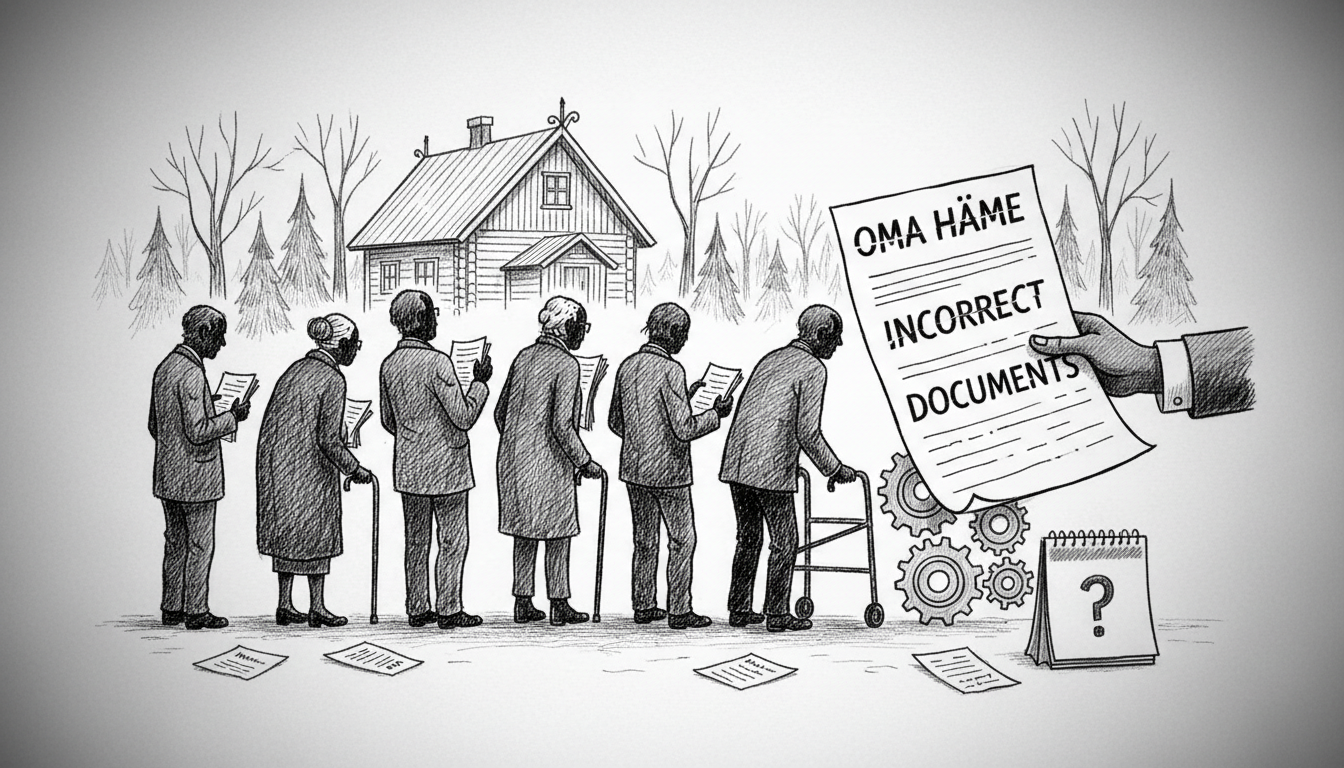A significant administrative error has affected approximately 500 customers of Oma Häme, the welfare service provider for Finland's Kanta-Häme region. The organization mistakenly distributed incorrect attachments with October invoices, primarily impacting elderly care service recipients.
The faulty documents contained income verification forms for means-tested services. While the invoices themselves remained accurate, the attachments either arrived incomplete or contained wrong information. This represents a serious breach in customer data handling within Finland's decentralized welfare system.
Elderly service customers receiving regular home care, communal housing, or long-term residential services bore the brunt of the error. The mistake also reached mental health and substance abuse service clients. Surprisingly, 53 disability service customers or their representatives received documents despite not requiring income verification.
Oma Häme has acknowledged the error and issued a formal apology. The organization collaborates with service provider Provincia Oy to identify all affected customers. Officials confirm customers can safely ignore the incorrect attachments while paying their actual invoices.
The timing compounds the problem. Finland's welfare system requires annual income reassessments for means-tested services. New payment decisions take effect every January, making this period particularly sensitive for both administrators and vulnerable customers.
Oma Häme now sends separate letters explaining the situation to customers or their representatives. These communications include contact details for returning forms properly. The welfare area urges prompt form returns to prevent payment processing delays.
Service disruptions loom large. The welfare area cannot begin next year's billing for long-term services until completing new payment decisions. High customer volumes mean potential billing delays, with possible multi-month consolidated invoices.
This incident highlights systemic challenges in Finland's regionally administered welfare services. Since the 2023 healthcare and social services reform, responsibility shifted from municipalities to 21 welfare areas. This transition created operational complexities that may contribute to such errors.
International readers should understand that Finnish welfare services operate differently than many systems. Heavily subsidized public services require detailed income verification, making documentation errors particularly disruptive for vulnerable populations.
The practical implications are substantial. Elderly and disabled customers face unnecessary paperwork and potential service interruptions during Finland's harsh winter months. The organization's credibility suffers while staff resources divert to damage control rather than service delivery.
What comes next? Oma Häme must restore customer trust while ensuring accurate billing continues. The broader Finnish welfare system should examine whether similar errors occur elsewhere. For affected customers, the immediate concern remains receiving correct documents and maintaining uninterrupted services.

